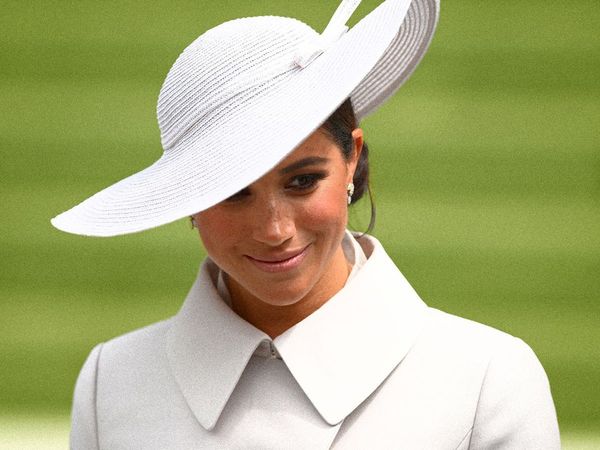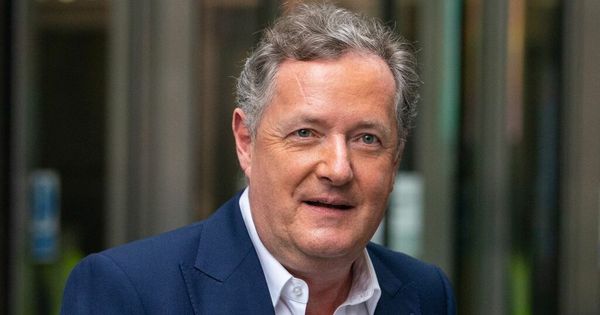
It’s “unfiltered”. It’s “groundbreaking”. It’s… the most self-congratulatory 57 minutes of audio you’ll hear all year. If you’ve missed the online brouhaha surrounding the first episode of Meghan Markle’s long-awaited podcast, Archetypes, buckle up.
Featuring an interview with Serena Williams – who the duchess introduces as her “dear, dear friend”, naturally – the episode examines motherhood, Williams’s decision to retire from tennis, and, as its title suggests, the “misconception of ambition”. That’s all very well and good. And yes, some of the quotes from Williams – particularly those regarding sexism in sport – are of value. But they are somewhat diminished by the lack of nuance and genuine engagement from Meghan herself, who responds to Williams almost exclusively in platitudes.
The intention with Archetypes, if we’re to understand correctly, is to “investigate the labels that try to hold women back”. It’s about unpicking stereotypes and interviewing historians and “experts” who, presumably, extend beyond the duchess’s friendship circle. Though who knows?
Having listened to the first episode, I’m not sure Meghan is the best person to take on this ostensibly admirable pursuit. As she will tell you (a lot), Meghan is a feminist. But unlike Gloria Steinem, bell hooks and every other feminist icon, Meghan’s understanding of the ideology seems to be almost entirely about herself. Consider the start of the Archetypes episode. “When I was 11 years old, growing up in LA, I saw a commercial that would change the way I understood my place in the world,” she says in her slow, earnest California drawl. “Let me be clear: it wasn’t because this ad was some kind of ingenious piece of marketing – actually, it was just the opposite.”
The duchess goes on to explain that the advert – for dish soap – was aimed exclusively at women. It closed with the tagline: “women are fighting greasy pots and pans”. Hearing this, and the implication that only women washed dishes, made Markle “furious”. “And then,” she continues, “then I heard them – these two boys in my class, breathing life into my biggest fear. They said, ‘Yeah! That’s where women belong. In the kitchen!’ Oh man, this did not sit well with 11-year-old me.”
What happened next? You guessed it: Meghan wrote to Hillary Clinton, Gloria Allred and the president of consumer conglomerates Procter and Gamble, who owned the soap brand that made the advert. Her letter concluded with: “I was wondering if you would be able to change your commercial to ‘People all over America.’ Thank you, Meghan Markle.” And then, “Would you believe it? Three months later, a new version of the ad appeared on TVs all around the country.” [agh]
Look, I get it. And yes, it’s kind of cool that a precocious letter from an 11-year-old girl can change a national advert in the name of sexism – if that is indeed why Procter and Gamble tweaked its ad. But was it really necessary for Meghan to begin her podcast about feminism by telling us how she’s such a great feminist?
Self-aggrandising characterises the rest of the episode. When Meghan recalls meeting Williams, for example, she explains how she first spotted the tennis star heading towards someone at a Super Bowl party in 2010. “And I remember going, ‘Oh, my gosh, who’s Serena Williams going to talk to?’” she says. “And I look behind me, and when I turned around, you were there in front of me.”
Meanwhile, during her interview with Williams, Meghan frequently inserts herself into the conversation. When Williams alludes to some of the sexism and racism she has experienced in tennis, Meghan doesn’t ask her about it, and instead interjects to remind listeners just how close the pair are: “But hold on a second, unless you want – can I jump in there?” she says. “Because there are certain things that I know you won’t want to say about your experience, but I lived through a lot of that with you.”
Even a story about Meghan and Harry’s son, Archie, fails to paint her as anything other than short-sighted. Three years ago, while the family were on a tour of South Africa, Archie’s temporary bedroom caught on fire. Meghan recalls that everyone was “in tears” and “shaken”, but that they still had to attend an official engagement. “I was like, this doesn’t make any sense.”
The duchess might well have felt shaken by the fire, but was it really – as she claims – “just like” Williams playing a professional tennis match the day after a sleepless night with her daughter? It’s not like Meghan would have had to pay for the damages, either. And given the team of support and security that would have been around her at that time, is hers a relatable experience to anyone outside of the royal family?

My point is that at every step along the way of this podcast, Meghan seems to be missing the mark. What is being promoted as a subversive feminist podcast appears, so far, to be nothing more than an exercise in navel-gazing. One that is more about promoting its host than anyone else. Isn’t that exactly the kind of myopic “Lean In” brand of feminism we’ve been trying to move away from?
One of the quotes from the podcast that has been doing the rounds comes when Meghan claims she never felt any negative connotation around the word “ambition” until she met Harry. “And um, apparently ambition is, uh… a terrible, terrible thing, for a woman – according to some,” she says.
I understand why Meghan would want to address ambition being used against women. But isn’t this a somewhat simplistic battle to fight? What’s more, it’s a bit outdated. It’s 2022, not 1950 – ambitious women are hardly slandered in the way they once were. And frankly, if it took marrying Prince Harry for Meghan to realise there were negative connotations behind female ambition, then she hasn’t really been paying attention.
Don’t get me wrong, I am not in the camp of Meghan-haters. Quite the opposite. I have always been a big defender of the duchess and have great admiration for any woman who speaks out against the institutions that oppress them, which, in Meghan’s case, appears to have been the royal family. If anything, I expected more from Archetypes. If I wanted bumper-sticker feminism (“Sometimes the right decision isn’t the easiest decision”), I would have bought a slogan T-shirt from a fast-fashion brand that doesn’t pay its workers the living wage.
I don’t want to hear Meghan talking about herself. Think about the kind of access she must have. She could use Archetypes to press world leaders about the impact of overturning Roe v Wade. The rise of violence against trans women in the US. The gender pay gap. Period poverty. Domestic violence. Given the platform she has – and the guaranteed high listenership of Archetypes – Meghan has a rare opportunity to promote tangible societal changes. Why isn’t she?
Of course, this is only the first episode. So perhaps all this is still to come. Then again, the next guest on Archetypes is Mariah Carey. So I’m not getting my hopes up.










